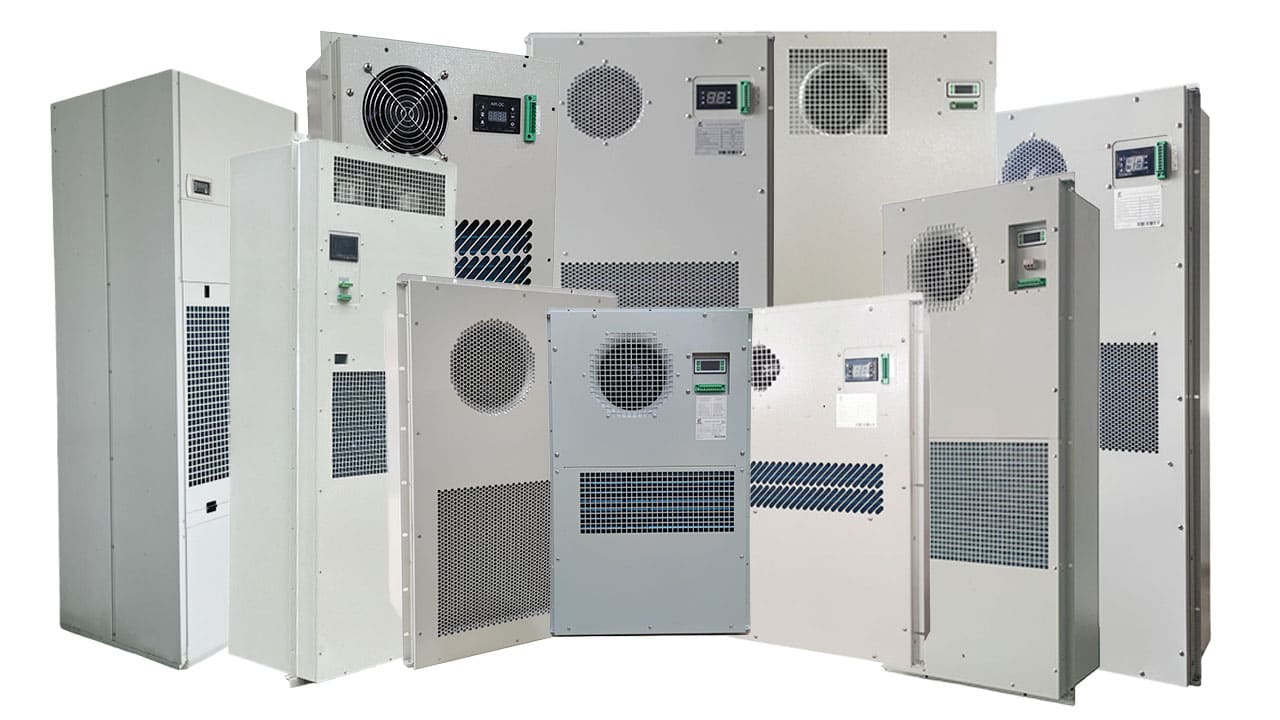
What is an Air Conditioner?
An air conditioner is an appliance designed to provide comfort during hot seasons by controlling the temperature indoors. It can also regulate relative humidity, prevent bacterial growth, and eliminate odors. For those interested in how air conditioners work, this article will explain the operation of panel air conditioners and their unique characteristics, including panel cooling systems specifically designed for industrial applications.
How Does an Air Conditioner Work?
An air conditioner cools a space by pulling out heat and moisture from inside the building. Here's a basic overview of how it operates:
Refrigerant Circulation
The system uses a substance known as refrigerant, which alternates between a closed loop of tubes. It absorbs and loses heat as it transitions from a liquid to a gaseous form.
Evaporator Coil
The liquid refrigerant passes through an expansion valve or metering device that reduces its pressure and temperature before re-entering the evaporator coil, where it absorbs heat and starts the cycle again.
Compressor
The gaseous refrigerant is drawn into the compressor, which is usually located outside the main home area. The compressor increases the refrigerant’s pressure and temperature, preparing it for the next stages.
Condenser Coil
The hot, high-pressure gas moves to the condenser coil, where it expels heat to the environment. The refrigerant cools and condenses back into a liquid.
Expansion Valve
The liquid refrigerant then flows into an expansion valve or metering device, where its pressure and temperature are reduced before it returns to the evaporator to begin the cycle again.
Thermostat Control
The thermostat controls the air conditioner, reading the temperature inside the room to turn the appliance on or off as necessary.
This continuous cycle of evaporation and condensation cools the interior of the building while also reducing humidity levels, just like a refrigerator.
What is a Panel Air Conditioner?
A panel air conditioner is a specialized cooling system primarily used in industrial environments. Its main function is to dissipate heat within electrical enclosures, preventing overheating of electrical components. This helps maintain the ideal operating conditions for sensitive equipment, such as panel AC for CNC machines or panel cooler units used in manufacturing processes. These air conditioners are essential for ensuring the longevity and efficiency of electrical panels.
Panel air conditioners work by continuously measuring the internal temperature and conditioning the air when it gets too hot. This prevents overheating, which could lead to potential equipment failure and accidents. The panel cooling system is often customized to suit the specific requirements of the equipment it is cooling.
What Does an Air Conditioner Work With?
Air conditioning systems rely on a fluid, called refrigerant, that absorbs heat and turns into vapor as it circulates. The refrigerant is compressed by the compressor, expels heat via the condenser, and then cools down before being expanded and returning to the evaporator for another cycle. Most systems operate using electrical energy, though modern units are increasingly designed with energy conservation features to improve efficiency.
These systems are commonly needed in various environments, such as homes, offices, industries, and hospitals, to provide comfort during hot summer months.
Where Are Panel Air Conditioning Systems Applied?
Panel air conditioning systems are used in a variety of industrial applications, including:
Manufacturing Facilities
These systems help maintain temperature control in production and storage areas to create optimal conditions for products.
Logistics and Warehousing
In warehouse settings, panel cooling air conditioners ensure that temperature and humidity levels are properly controlled for the storage of goods.
Food and Beverage Industry
They are vital in washing and keeping production areas and storage facilities at the right temperatures.
Data Centers
Panel cooling AC systems are essential in preventing overheating of equipment in server rooms and other critical areas where cooling is needed but external air cannot be introduced.
Choosing an Industrial Panel Air Conditioner
When selecting an industrial panel cooling system, consider the following factors:
Capacity
Choose from high, medium, or low capacity units based on the needs of your business. Professional HVAC advisors can help select the right unit for your application.
Energy Efficiency
Consider systems with a lower life-cycle cost, as they reduce energy consumption and operating costs over time.
Ease of Maintenance
Select models that require minimal service to maximize their lifespan.
Environmental Factors
Opt for energy-efficient systems that meet sustainable practices and green certifications.
Warranty and Service
Ensure the unit comes with a solid warranty and access to technical support for maintenance and repairs.
Panel Cooling AC and Panel Cooler Units
Panel cooler AC systems, particularly those designed for industrial environments, play a crucial role in keeping sensitive equipment cool. These panel cooling air conditioners are often compact and engineered to handle higher heat loads. Whether it's a small panel AC used in smaller enclosures or larger panel cooler units for extensive equipment, these systems ensure optimal performance and reliability.
Conclusion
Panel ACs, including panel cooling AC systems, panel cooler units, and small panel ACs, are indispensable in industries where equipment must operate within specific temperature ranges to avoid malfunction or failure. Whether used for panel cooling systems in CNC machines or for large-scale industrial cooling applications, these units provide essential protection and ensure the smooth operation of vital equipment.












